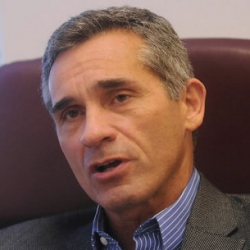Lawmakers in Alabama are trying to bring gambling to one of the U.S. states known for its anti-gaming stance through the decades. Senate President Pro Tem Del Marsh, a Republican from Anniston, is planning to write a proposed bill that would bring slot machine-style gaming to the state’s racetracks, while also providing the state with a lottery.
The Senate Republicans voted to give Marsh the go-ahead on writing a new draft bill. Sen. Marsh said that new gaming in the state would provide additional revenues towards Alabama’s troubled General Fund. The President Pro Tem said that the caucus approved the measure by a wide margin, though he signaled to the social conservatives who vote Republican that some members were solidly against such a law.
Marsh told reporters on Tuesday, “We had just a few members adamantly opposed. The bulk of the caucus asked me to put it in play.”
Lottery Gambling
This is the first time in 16 years that a lottery vote will take place. Since the last time such a measure was voted on, the American public’s views on land-based gambling has changed considerably, especially when it comes to lotto gaming. Most states have lotteries, while 45 states are members of the multi-state lottery associations: Mega Millions and Powerball.
Proponents of an Alabama state lottery say that banning such gambling in the state only enriches neighboring states, while denying Alabama a significant source of revenue. Alabama residents who live near the borders of the state or who travel out-of-state can buy lottery tickets when they travel in any direction. That money passes out of the state and into the coffers of other governments, while Alabama’s General Fund continues to founder. Legislators who supported the new gaming bill in the GOP Caucus believe lottery gaming could help replenish the General Fund.
Video Lottery Terminals
Del March’s measure also would legalize video lottery terminals at the state’s racetracks. Though the VLTs use a different game mechanic than slots, the gaming machines look almost identical to slot machines and give out prizes quite similar to them. VLTs skirt stricter anti-gaming laws because they play out the way a lottery or bingo game would, where one player winning limits other players’ ability to win, because a limited number of prizes are drawn from a prize pool. In standard slots, each spin of the reels is separate from every other spin. While VLTs limit jackpot winning opportunities, it also assures someone wins eventually.
Proponents of the video lottery terminals or gaming tables at racetracks argue that such gaming would create new jobs and aid in tourism, because residents from nearby states would travel to the racetrack-casino (“racinos”) for a day of gambling. VLTs would also help bolster the racecourses themselves, while generating revenues for Alabama.
Auburn University Gaming Study
Auburn University in Montgomery had its Institute for Accountability and Government Efficiency (IAGE) make a report on the expected consequences of the inception of a state lottery and an expansion of the gambling compact.
That study estimated that Alabama would receive $331 million or more in annual lottery revenues. The state would collect an additional $63 million to $73 million annually from Indian casinos, which would operate the racetrack gaming. The expansion of gambling is expected to create an additional 13,000 jobs.
ALCAP Warns Evangelical Christians
The measure is not popular with many Republicans, though. One day after the GOP Caucus approved Marsh’s bill, the Alabama Citizens Action Program (“ALCAP“) released the transcript of a passionate email urging members to oppose the bill.
The ALCAP said in an email to its members this past Monday, “I cannot emphasize enough the importance of EVERY church member and EVERY person who is opposed to a gambling take-over of our state contacting your own House Member and State Senator THIS WEEK, and asking him/her to oppose EVERY pro-gambling bill that has been or might be introduced. If the pro-gambling crowd is successful, they will own this state for many years to come.”
Economic Data Challenged
The email went on to challenge the economic arguments for the expansion of gambling. ALCAP wrote about gambling in general, “It NEVER brings in the amounts of money that are promised, and in fact, it literally sucks money out of the economy of individual states and the nation.”
The electronic newsletter then pointed to one of the racecourses which would receive a boost from the VLTs. It said, “We don’t have to look far to see the truth of that statement. When the Birmingham Racetrack was approved by voters several years ago, the promise was made that the Birmingham City Schools would never want for money again.”
“Today, the Birmingham Racing Commission is having to put money into the racetrack just to keep it open and operating and the Birmingham City Schools have continued to struggle financially through the years.”
ALCAP made a sweeping statement about the state of gambling in the United States, claiming that gambling ventures are predatory and they do more harm than good for the societies in which they operate. ALCAP stated, “Gambling has proven over and over again throughout the nation, in every state where it has been legalized to be a failed government policy.”
Test of the Right’s Will
Evangelical Christians were a key reason the 1999 lottery measure failed. If lottery gambling is to be passed by the state legislature in Alabama, then proponents of the lottery are going to have to contend with the Evangelical movement once more. Whether Alabama’s culture has changed enough in 16 years to overcome the electoral influence of ALCAP and other social conservative groups is to be determined, though it should be an instructive test case in one of America’s traditional conservative bastions.

